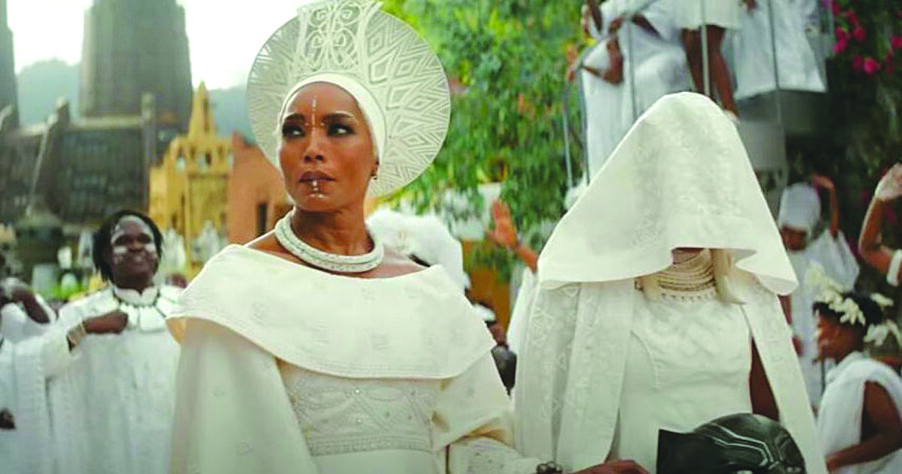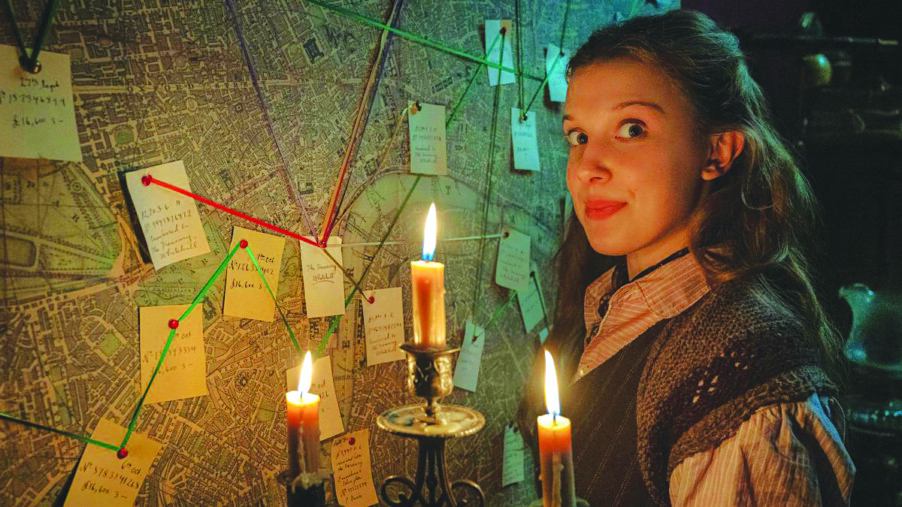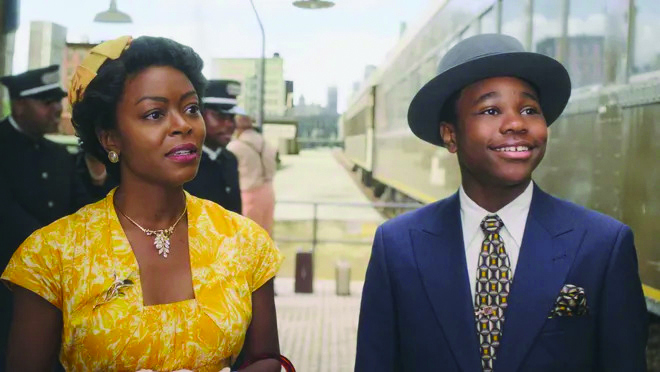Black Panther: Wakanda Forever (PG-13)
Marvel says goodbye to Chadwick Boseman, his T’Challa and his version of Black Panther while expanding the ideas of Wakanda and its place in the world in Black Panther: Wakanda Forever, a lovely, complex entry in the more thoughtful side of the MCU.
The movie opens on a desperate Shuri (Letitia Wright), sister to King T’Challa and Wakanda’s scientific genius, trying to save an off-screen T’Challa who is dying from illness. His death seems to not only shake her emotionally but sever some connection to her culture and family’s sense of spirituality. She sinks into extreme rationality and guilt about not being able to cure her brother.
We jump forward a year, when Queen Ramonda (Angela Bassett) has become Wakanda’s leader. With T’Challa dead and the country’s Black Panther protector gone (the flowers that make new Black Panthers were destroyed by Michael B. Jordan’s Killmonger in the first movie), Ramonda has to fight off international attempts to obtain the country’s all-powerful element, vibranium. At the United Nations, Ramonda endures the insincere disappointment by Western countries who want Wakanda to willingly share (or just give up) their vibranium — while at the same time those countries try to steal vibranium via military raids.
Plan B when Wakanda’s Dora Milaje (the country’s army of female warriors) prove to be more than equal to fighting off those raids is for Western nations to find their own vibranium elsewhere. A machine designed by Riri Williams (Dominique Thorne), the Shuri-level genius who is still a college student in Boston, looks for vibranium in the oceans — and finds it in the Atlantic. But much like other things “discovered” by Western nations, this vibranium has been long claimed by another nation.
K’uk’ulkan, also called Namor (Tenoch Huerta Mejía), is the king of a people who live in Talokan, a nation under the ocean. Once living in Central America, the Talokanian ancestors escaped the colonizing Spanish and their diseases with the help of a plant that, similar to the flower Wakanda used for Black Panthers, offered extraordinary strength and an ability to live under the water. The people moved into the sea where their vibranium-dependent city has kept them safe for centuries. But now that the wider world knows about vibranium and its potential, Talokan is at risk and Namor blames Wakanda and T’Challa’s push for openness.
I like how this movie can be both about T’Challa and the grief over his (and Boseman’s) loss and about the unintended consequences of his response to Killmonger’s argument that the prosperous and powerful Wakanda owes something to the oppressed elsewhere in the world. Like Wakanda before the first movie, Talokan has chosen to hide its power from the rest of the world in response to colonialism and theft of resources. But Wakanda’s openness has made Talokan vulnerable. Does this make them natural allies, natural enemies or something else? I rewatched a bit of 2018’s Black Panther and that movie has a well-defined purpose and clarity of mission that this movie doesn’t. But this movie’s murkiness largely works, as some of the questions here are just messier and the overall story feels more contemplative.
Of course, we get great performances all the way around — including from returning players Danai Gueria, as the badass Dora Milaje general; Lupita Nyong’o as Nakia, who has been working as a school headmistress in Haiti, and Winston Duke as M’Baku, the leader of a Wakandan tribe. Bassett and Wright do an excellent job of giving us the weight of grief — a weight they each carry in a different way. Mejía offers a nuanced Namor — not a villain but not a saint either. The movie’s actual villains — represented by someone who I guess is one of the Disney+ Marvel TV show characters (it’s hard to keep up) — are the predatory U.S. and European powers and their plans for vibranium, which don’t seem great based on the CIA director’s near cackled “I dream about it,” a response to the question of what the U.S. would do if it had vibranium.
Namor isn’t quite the electrifying antagonist Killmonger was and, though cool, the watery Mesoamerican wonderland of Talokan isn’t quite as thrilling as the Afro-futurism of Wakanda (as with Aquaman’s Atlantis in the DC universe, making bright and majestic-looking stuff under water is just tough). And, despite its two-hour-and-41-minute runtime, there is a slight “sudden stop” quality to the movie’s final conflict (perhaps because of the nature of “the true villain is colonialism”). Wakanda Forever is nevertheless a deeply touching movie that holds your attention with enough Dora Milaje fighting action to add some pep. A-
Rated PG-13 for sequences of strong violence, action and some language, according to the MPA on filmratings.com. Directed by Ryan Coogler with a screenplay by Ryan Coogler & Joe Robert Cole, Black Panther: Wakanda Forever is two hours and 41 minutes long and is distributed in theaters by Walt Disney Studios Motion Pictures.
Featured photo: Wakanda Forever.






